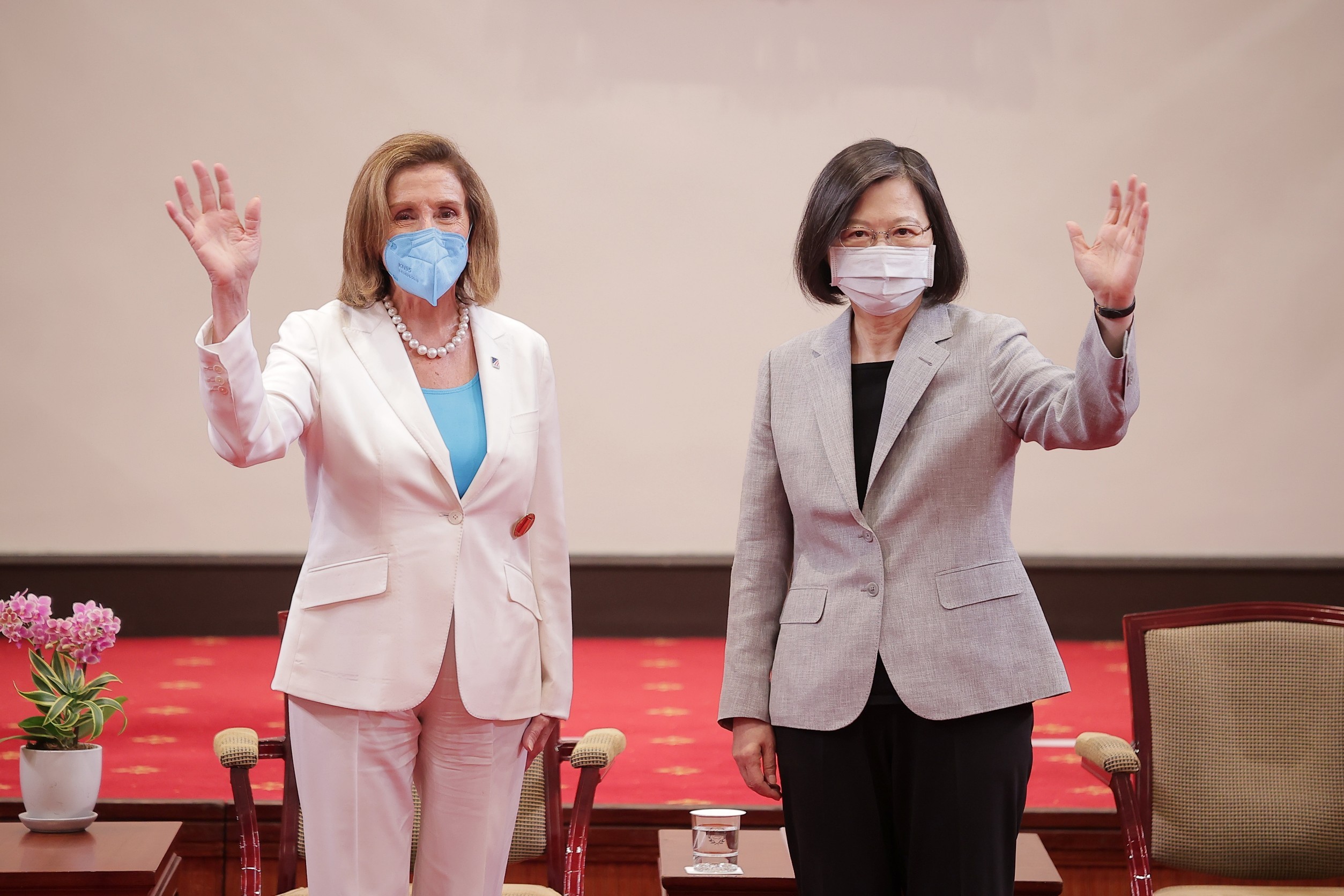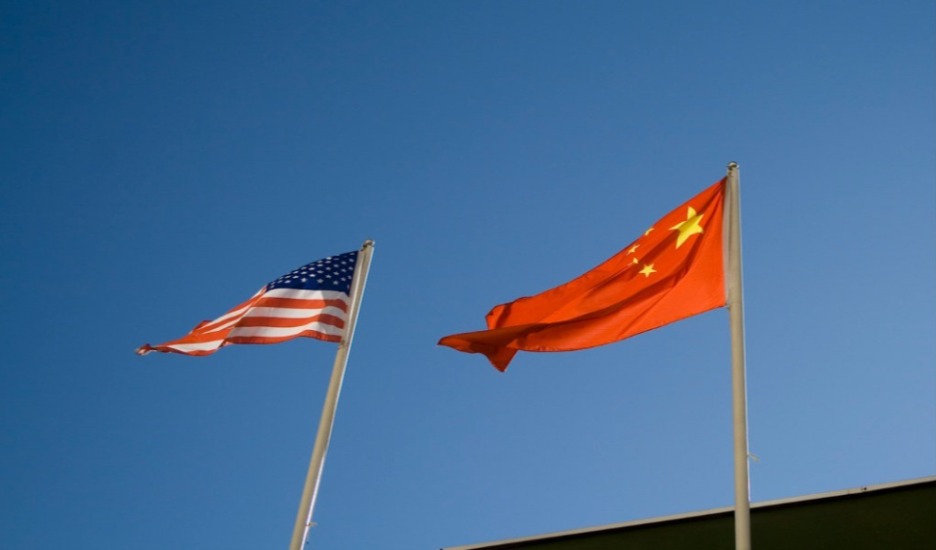The New U.S.-Taiwan Trade Agreement and Its Approval
The deal and new legislation tee up questions about who controls U.S. trade policy.

Published by The Lawfare Institute
in Cooperation With

Editor’s note: This piece also appears on the International Economic Law & Policy Blog.
On June 1, the United States and Taiwan signed a new trade deal. The agreement, which spans eight chapters and 75 pages in the English version, creates obligations for both parties to enhance trade facilitation, adopt good regulatory practices, eliminate barriers to trade in services, heighten anti-corruption efforts, and support trade by small and medium enterprises. Although it does not reduce tariffs, it contains binding commitments for both governments designed to reduce barriers to trade and enhance market access in both directions. The Biden administration has announced that this is the first of at least two trade agreements that it intends to negotiate with Taiwan. Upcoming trade deals will address agriculture, state-owned enterprises, and labor and environmental issues—areas that the United States has identified as issues of greatest importance in its trading relationship with Taiwan.
The Biden administration’s negotiation of this agreement, and Congress’s response, raise four major complications for U.S. trade and foreign policy.
First among the complications created by the U.S.-Taiwan trade agreement is an authority problem: Congress never authorized the executive to enter into (in other words, sign) such an agreement, let alone bring it into force. This is not a new issue. As we outlined in a previous piece on Lawfare, the U.S. Constitution gives Congress the power to regulate commerce with foreign nations. Trade agreements are thus different from other kinds of international agreements. The executive branch has no constitutional authority over foreign commerce and thus can bring trade agreements into force only when authorized by Congress. In most instances, Congress—via successive trade promotion authority (TPA) statutes—also has mandated that it approve any agreement before that agreement can enter into force. Although those statutes grant the executive branch the authority to enter into trade agreements that meet certain conditions, they implicitly or explicitly withhold authorization if those conditions are not met. Despite this long statutory practice agreed by both branches through the legislative process, the Biden administration argues that it can negotiate, enter into, and bring into force trade agreements of many types on the basis of its delegated authority set out in 19 U.S.C. § 2171, which is part of the 1974 Trade Act. But 19 U.S.C. § 2171 merely designates the U.S. Trade Representative (USTR) as the lead office in the executive branch responsible for trade negotiations; nothing about § 2171 gives the USTR the authority to enter into or bring into force trade-related agreements.
Second is a political challenge that intersects with the authority problem. While members of Congress have raised concerns about the administration’s trade executive agreement practice, they have also long sought a trade deal with Taiwan. So, in an effort to support the deal in principle and reassert its authority on trade, the House passed a bipartisan bill on June 21 called the United States-Taiwan Initiative on 21st-Century Trade First Agreement Implementation Act.
This Taiwan Initiative Act makes a couple of key moves. First, it sets out Congress’s approval of the new deal. Even though members maintain that Congress never authorized the USTR to engage in the negotiations or enter into the agreement with Taiwan in the first place, the act would authorize the president to provide for the Taiwan agreement’s entry into force, resolving at least part of the authority problem. It makes entry into force subject to conditions similar to those found in traditional TPA statutes under which U.S. free trade agreements have been concluded.
More innovatively, it also sets out requirements for the USTR’s interaction with Congress regarding any future proposed agreements with Taiwan. In particular, the proposed Taiwan Initiative Act would require the USTR to provide agreement text that it intends to table to Congress before it provides it to Taiwan, and to give Congress an opportunity to review and comment. It would tightly control the timelines for negotiation by effectively constraining the USTR from tabling text before members have completed their review. It would also require the USTR to provide Congress with any text that Taiwan has offered. This language goes beyond what TPA has required. TPA focuses on consultation and obligates the USTR to share documents upon request. The restrictions in the Taiwan Initiative Act undoubtedly complicate the USTR’s negotiating plans in ways that may be ultimately unproductive vis-a-vis the U.S. negotiations with Taiwan, but they nevertheless remain within Congress’s prerogative to regulate commerce. Since the president has no independent constitutional authority in trade as he does in other areas of foreign relations, Congress may assert these restrictions on its designee.
Taken together, the initial absence of authority to enter into the agreement and the subsequent effort to approve the agreement subject to new prospective restrictions on the executive branch reflect an increase in assertiveness by both the executive and legislative branches. In other areas of foreign relations law, the executive has countered congressional efforts to restrict or limit executive freedom by statute with arguments about the executive branch’s constitutional authority over foreign affairs. But, as we have noted, that constitutional authority does not extend to foreign commerce, which the Constitution places exclusively within Congress’s powers. As a result, there is little doubt that Congress can restrict the executive branch’s ability to negotiate, enter into, or bring into force trade agreements. To be sure, the executive may enjoy more latitude to engage with trading partners in the absence of legislation to the contrary. But once Congress has spoken, the executive is bound to adhere to any rules or restrictions that Congress may make.
A third issue is how to think about this proposed legislation in the broader conversation about trade agreements. As noted, the act addresses only this deal and future deals with Taiwan. Members have proposed that Congress authorize negotiations for trade agreements with, in addition to Taiwan, the United Kingdom, Kenya, and Ecuador, hoping to urge the administration to enter into free trade agreements with those countries. But the country-specific approach has not taken hold until now, and it did so as a matter of necessity since the Taiwan deal has already been signed. This ex post approach raises questions about the status of other trade executive agreements and whether Congress will seek to treat those in the same way, picking and choosing approvals among them in ways that would make U.S. trading partners quite nervous and that would complicate the legal status of the unapproved agreements even more. Far more likely is that efforts on the Hill will continue to try to scope out clear rules on the USTR’s trade agreement authority for future agreements, including for the Indo-Pacific Economic Framework for Prosperity—the cornerstone of the administration’s present negotiating efforts.
A final problem is a wrinkle in the U.S. treatment of Taiwan. Although this is not the first trade-related agreement between the U.S. and Taiwan—the U.S. has entered into more than two dozen since the 1970s—if the Taiwan Initiative Act were signed into law, it would be, to our knowledge, the first expression of approval by Congress of a new trade deal between the United States and Taiwan in several decades. Under the Taiwan Relations Act and Executive Order 12143, agreements concluded after Jan. 1, 1979, that are intended to create commitments for the United States and for Taiwan are negotiated and signed by their nonprofit organization representatives. Those agreements are transmitted to the Congress, and such agreements have full force and effect under the law of the United States. But to our knowledge, none has received congressional approval (although the Taiwan Relations Act itself approved the continuance of all international agreements then in force between Taiwan and the United States). This enhanced role for Congress thus represents a degree of political blessing that undoubtedly sends a strong statement. Approving this deal is not enough to change the delicate U.S. position on recognition, but it would hold Congress out more than has been customary.
While the U.S.-Taiwan deal may not require changes to U.S. statutes, it does commit the United States under international law to maintain certain trade laws, among other obligations. Congress no doubt has not just an interest but the constitutional privilege of dictating what those laws ought to be. The new agreement and the Taiwan Initiative Act again bring familiar issues into focus—this time with bipartisan support for greater congressional intervention but in the context of a tense international relationship that the executive has historically closely controlled.



.jpg?sfvrsn=5a43131e_9)


